Compensation, Motivation, Performance, and Equity: Report Analysis
VerifiedAdded on 2021/06/16
|9
|523
|40
Report
AI Summary
This report analyzes two articles focusing on the impact of compensation on employee motivation and performance. The first article examines the compensation gap between expatriates and local employees, using equity and reflection theories to explain how unequal pay can reduce effort and discourage risk-taking. The second article discusses the importance of compensation research in the modern business world, highlighting the complexity of compensation policies and the differences in pay structures across various organizations. Both articles emphasize the significance of compensation in the business environment, with the second article supporting the first by describing different compensation plans. The report explores how compensation strategies affect employee behavior and creativity, particularly within multinational corporations, and the importance of understanding the relationship between pay, performance, and equity.
1 out of 9
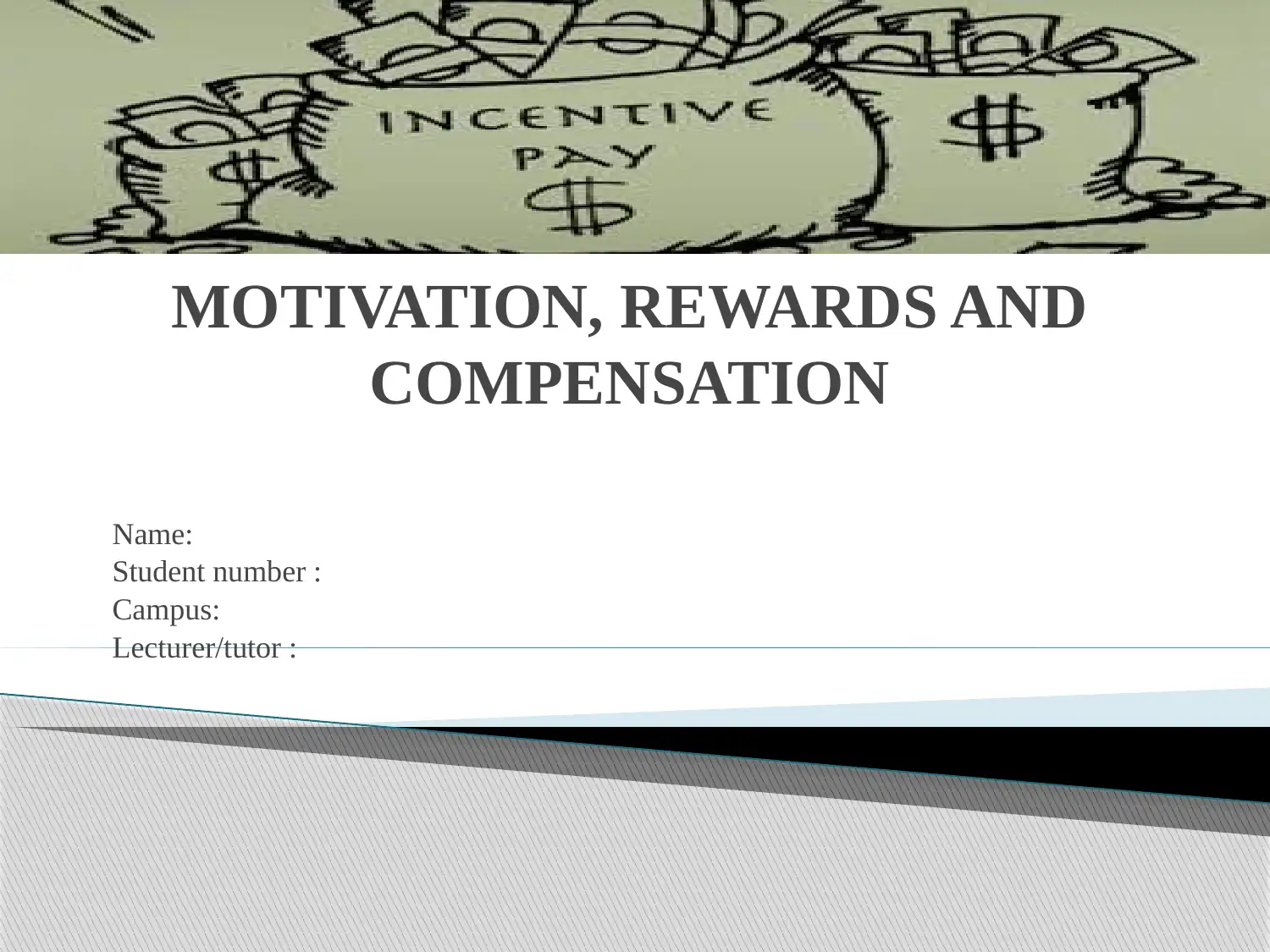
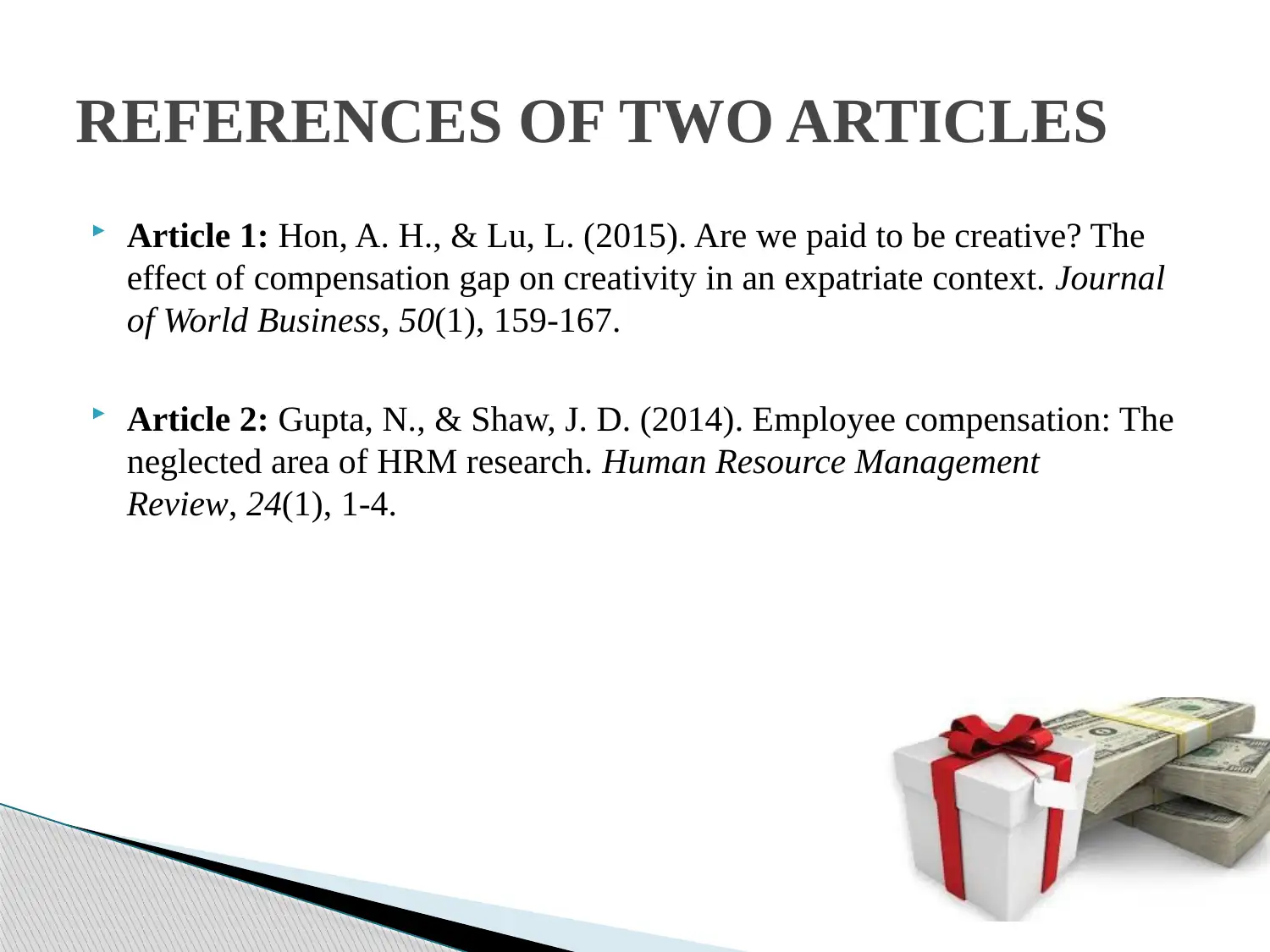
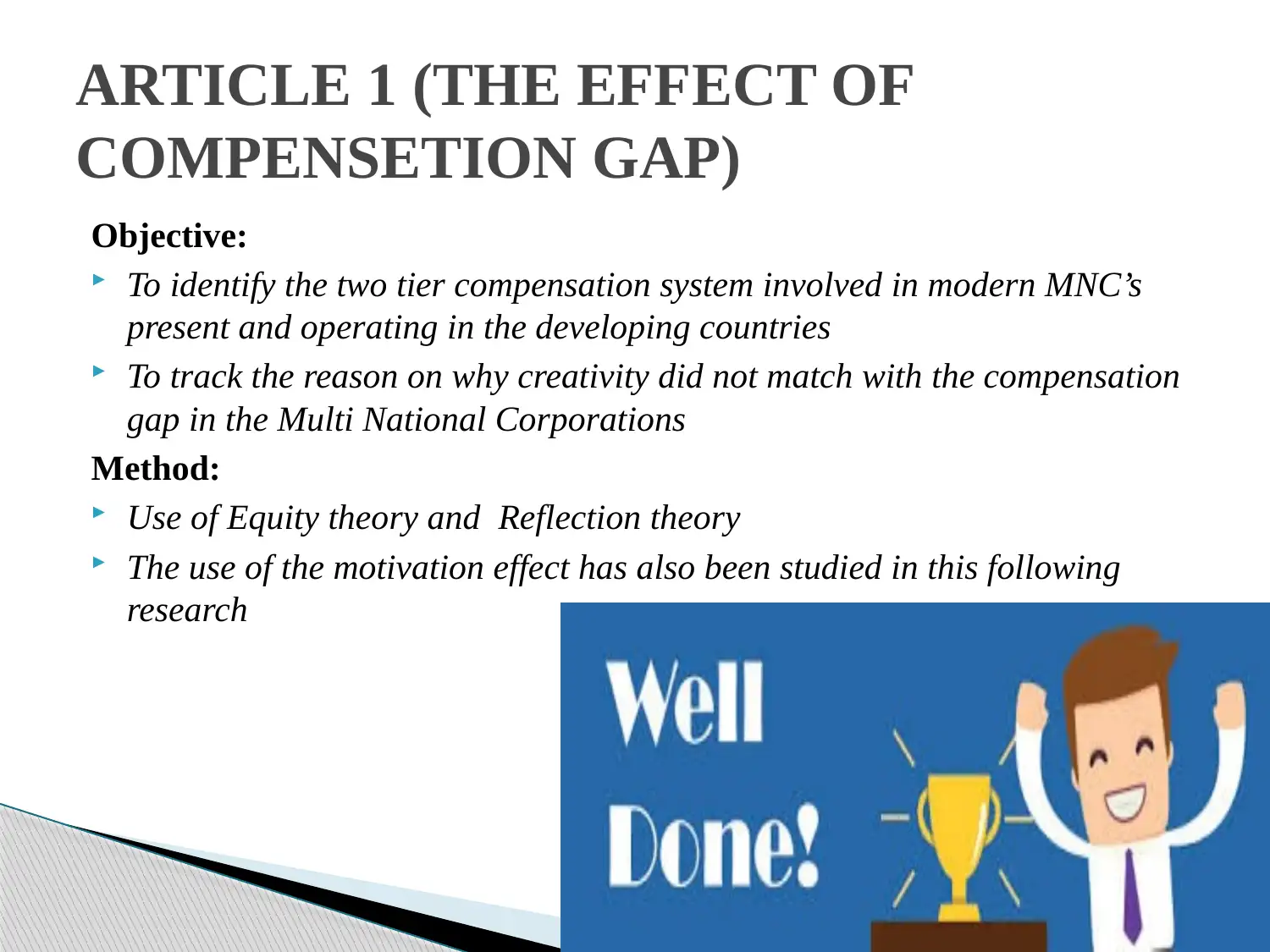

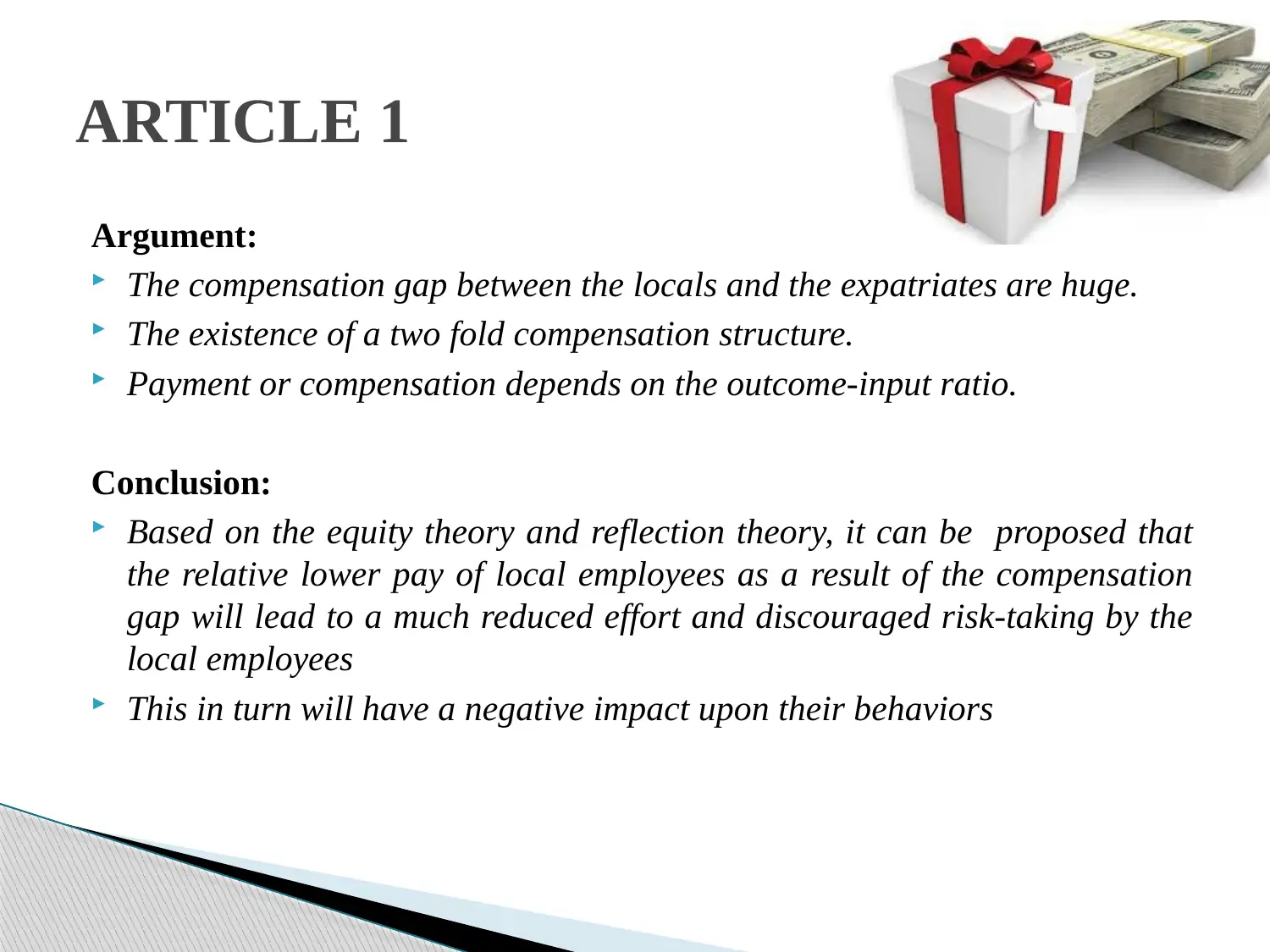
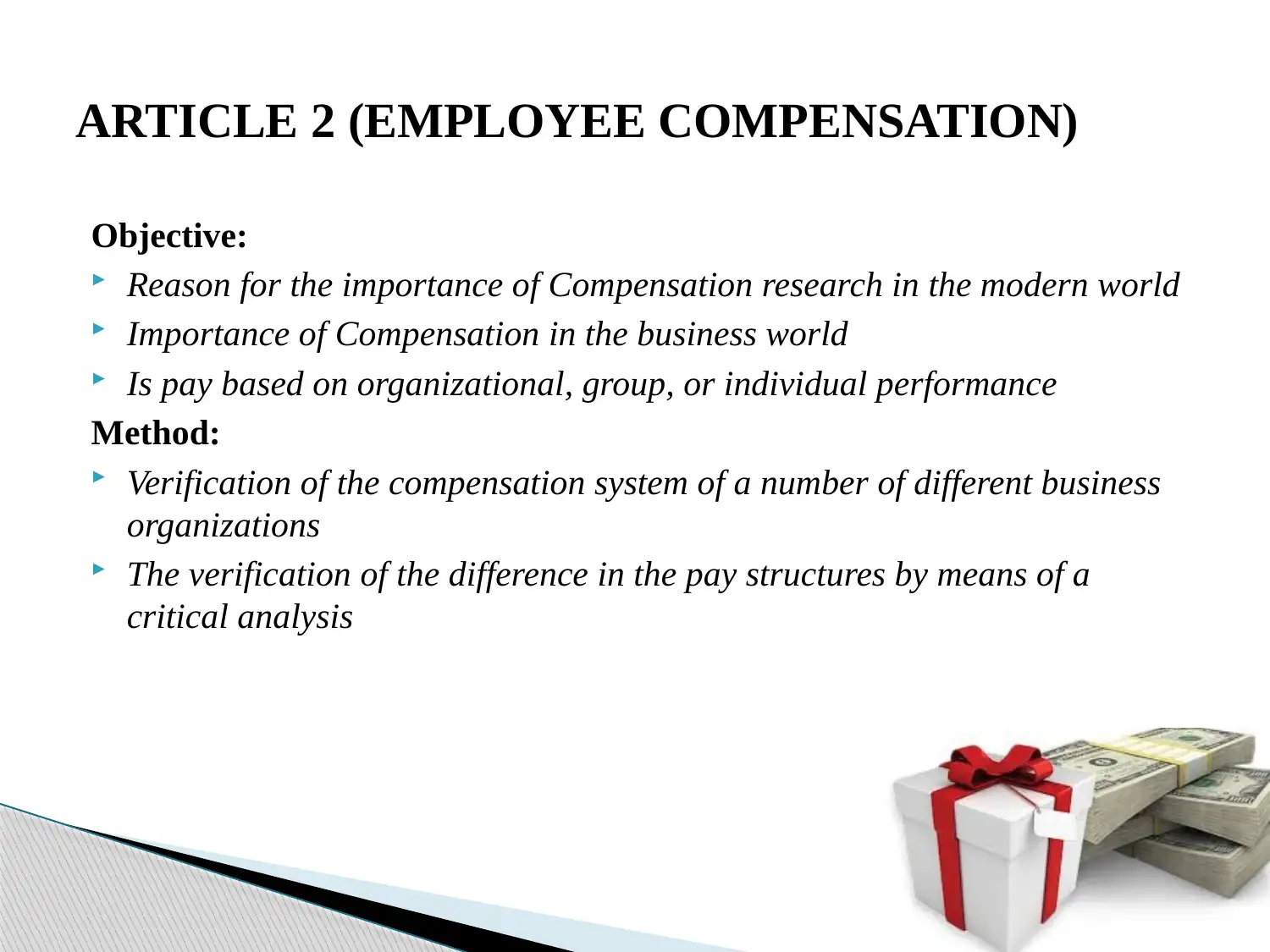
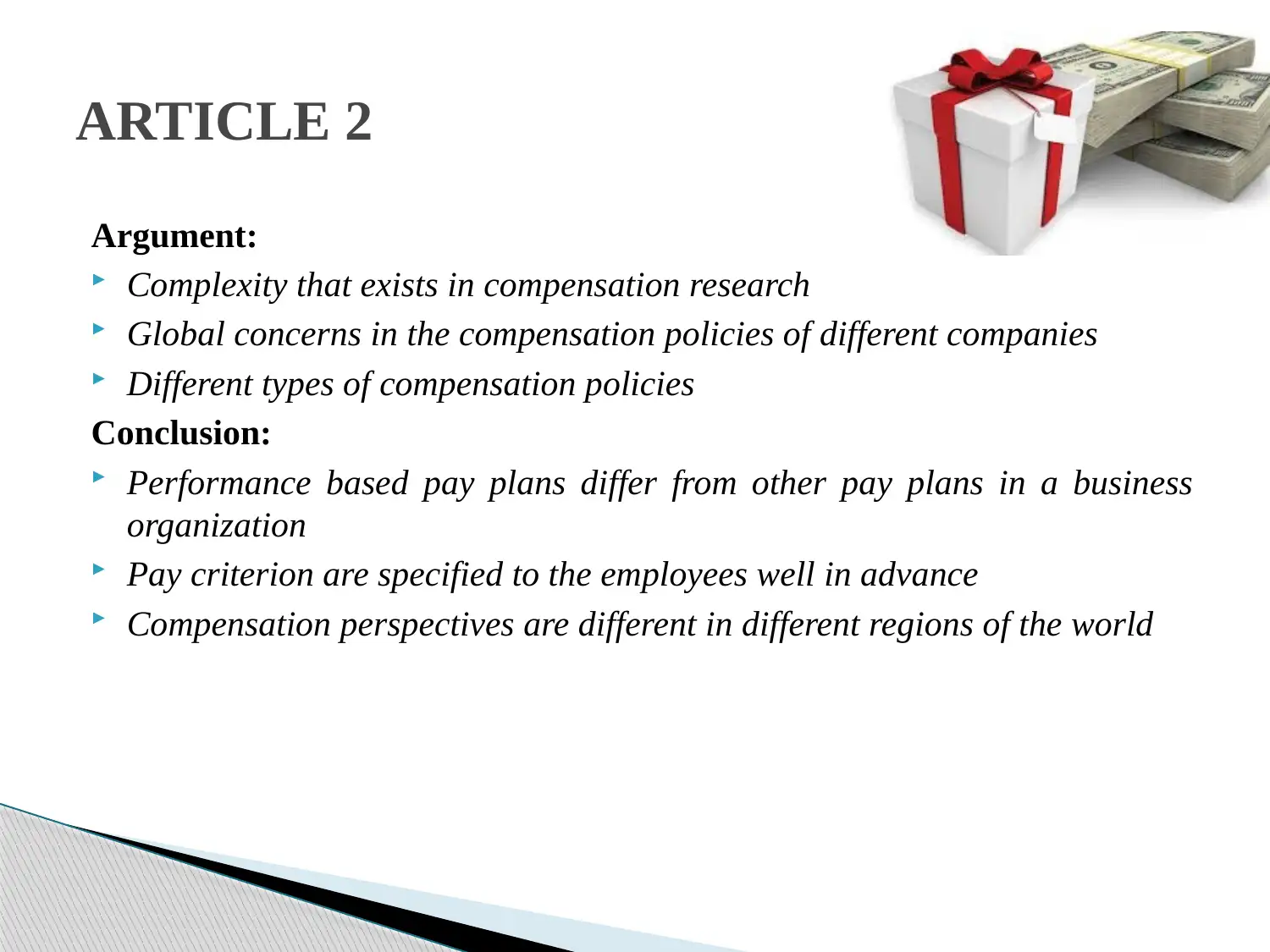
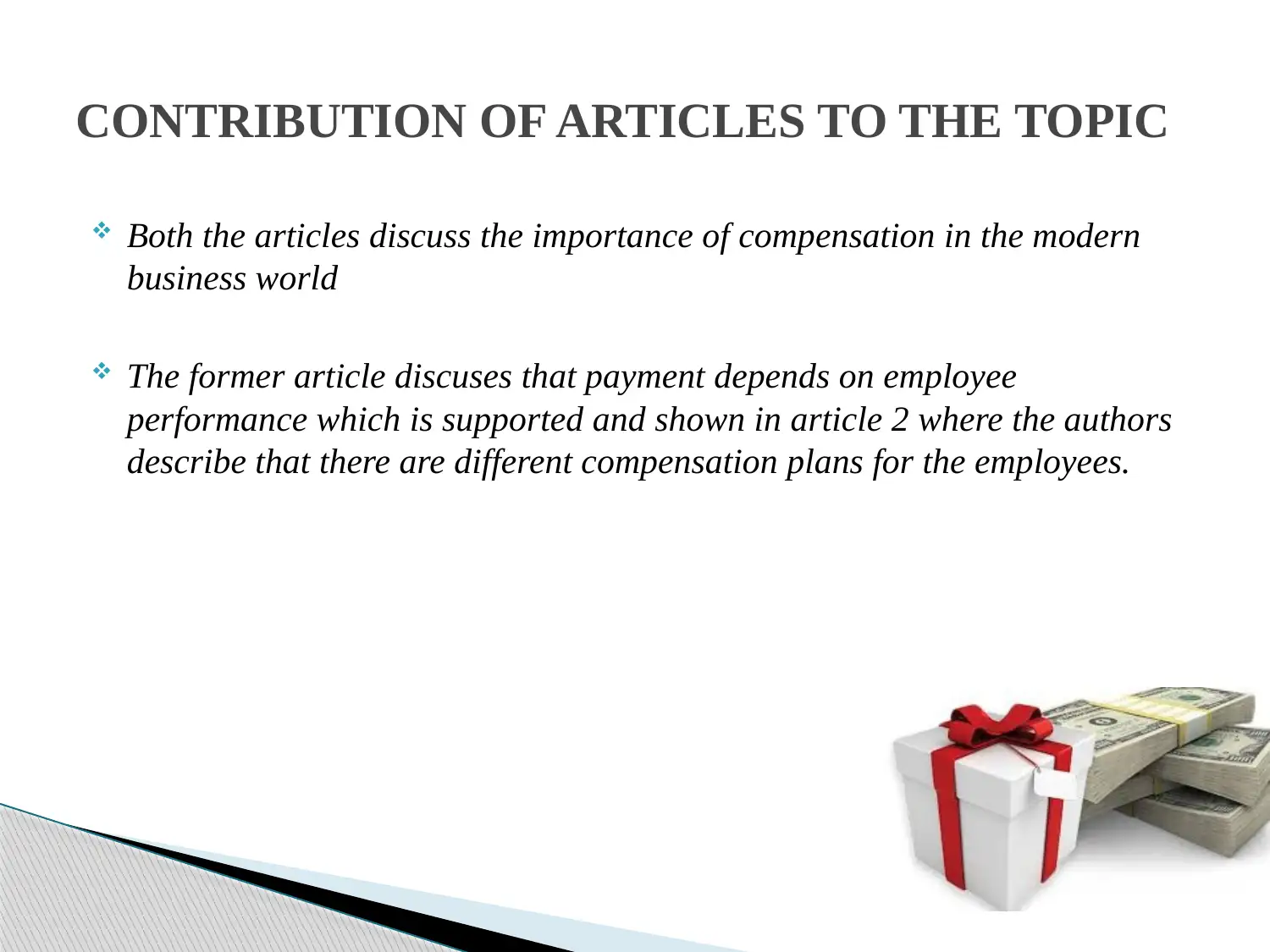
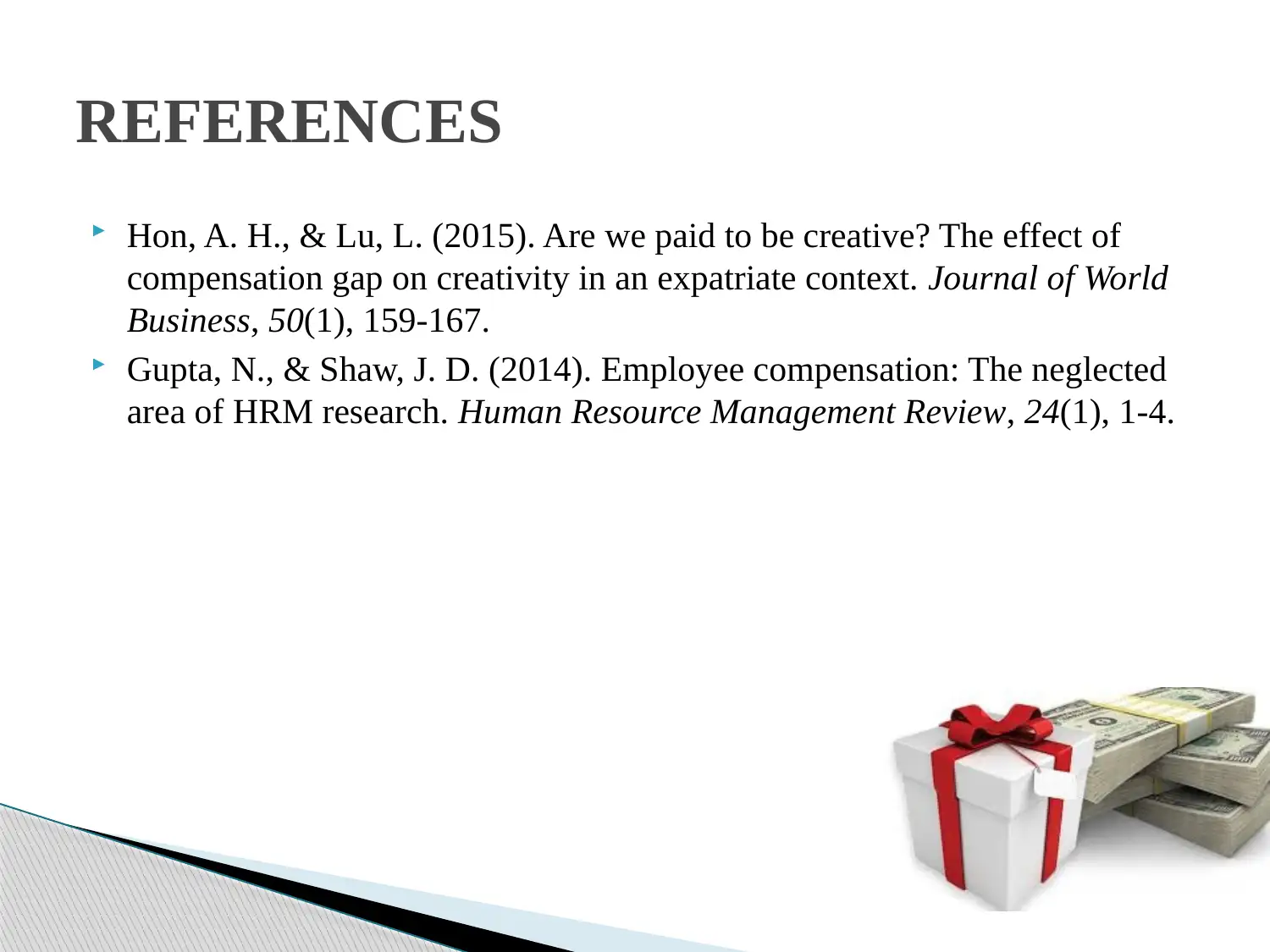

![[object Object]](/_next/static/media/star-bottom.7253800d.svg)